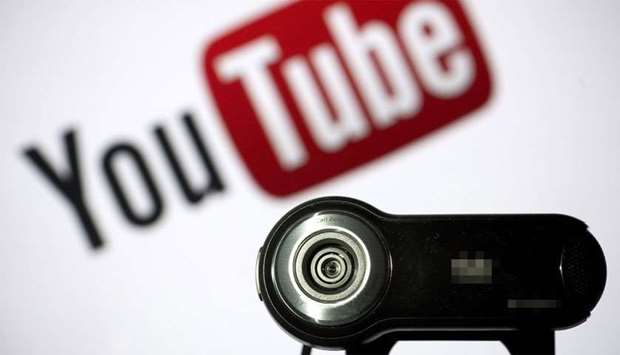Google agreed Wednesday to pay $170 million to settle charges that it illegally collected and shared data from children on its YouTube video service, a deal critics said was too soft on the internet giant.
The settlement with the Federal Trade Commission and the New York state Attorney General is the largest amount in a case involving the Children's Online Privacy Protection Act, a 1998 federal law, officials said.
Officials said YouTube violated the law that requires child-directed websites and online services to provide notice of their information practices and obtain parental consent prior to collecting personal information from children under 13.
The company marketed itself as a destination for children and benefitted by selling advertising to toymakers and others seeking to connect with young audiences, according to the FTC.
‘YouTube touted its popularity with children to prospective corporate clients,’ said FTC chairman Joe Simons.
‘Yet when it came to complying with COPPA, the company refused to acknowledge that portions of its platform were clearly directed to kids. There's no excuse for YouTube's violations of the law.’
The settlement also calls for YouTube to change the way it handles children's content.
‘We will treat data from anyone watching children's content on YouTube as coming from a child, regardless of the age of the user,’ YouTube chief Susan Wojcicki said in a statement.
‘This means that we will limit data collection and use on videos made for kids only to what is needed to support the operation of the service. We will also stop serving personalized ads on this content entirely, and some features will no longer be available on this type of content, like comments and notifications.’
Wojcicki added that Google would create a $100 million fund ‘dedicated to the creation of thoughtful, original children's content on YouTube and YouTube Kids globally.’
- 'Insufficient' remedies -
The settlement, which must be approved by a federal court, calls for the FTC to receive $136 million and New York state the remaining $34 million.
The deal was approved by a 3-2 vote of the FTC commissioners, with the two Democrats calling for tougher penalties.
The deal ‘repeats many of the same mistakes from the flawed Facebook settlement: no individual accountability, insufficient remedies to address the company's financial incentives, and a fine that still allows the company to profit from its lawbreaking,’ Democratic commissioner Rohit Chopra said in a dissent.
‘The terms of the settlement were not even significant enough to make Google issue a warning to its investors.’
Activists who filed a complaint last year against YouTube also said the deal falls short.
‘We are gratified that the FTC has finally forced Google to confront its longstanding lie that it wasn't targeting children on YouTube,’ said Jeff Chester of the Center for Digital Democracy, one of the groups in the complaint.
The ‘paltry financial penalty of $170 million’ is a mere slap and ‘sends a signal that if you are a politically powerful corporation, you do not have to fear any serious financial consequences when you break the law,’ Chester said.
‘Google made billions off the backs of children, developing a host of intrusive and manipulative marketing practices that take advantage of their developmental vulnerabilities. More fundamental changes will be required to ensure that YouTube is a safe and fair platform for young people.’
Simons said the deal goes beyond the legal requirements of the law by creating a system through which content creators must self-designate if their products are child-directed.
‘This obligation exceeds what any third party in the marketplace currently is required to do,’ FTC chairman Simons said in a statement with commissioner Christine Wilson.
Simons and Wilson said that it would be difficult to get a harsher penalty imposed in court which would require proving that Google knew about its violations.



